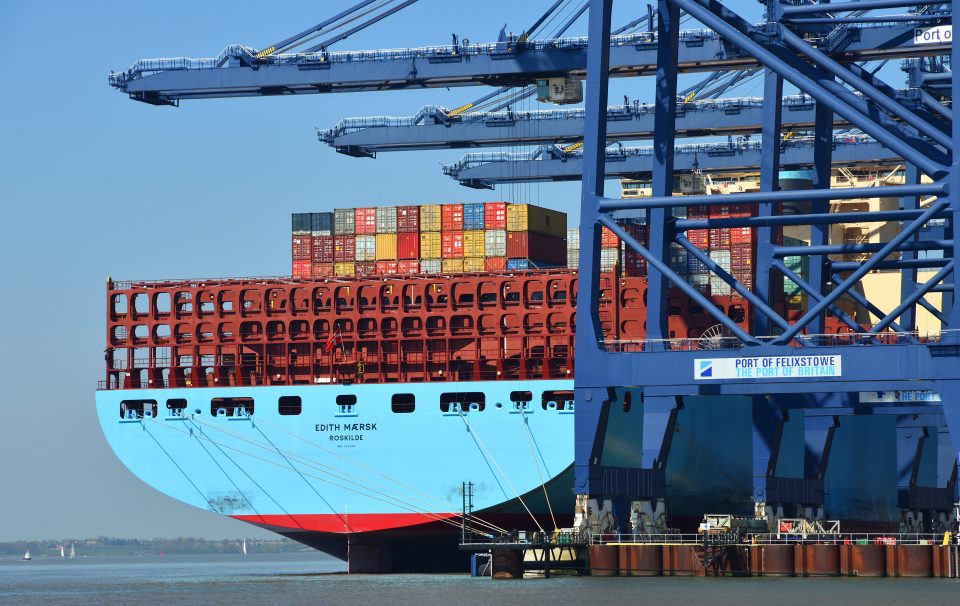One supplier told Drapers that a two-week delay in his stock arriving at UK ports has become the norm for his business.
He said that while retailers have been accommodating so far, he is expecting to take a hit on margins as a result of the delays: “I imagine [retailers will say] you are late and if you are going to need me to take all of that stock in the limited time period and sell it before the following season, I’m going to need some form of discount. That’s not criticism of retailers: that’s absolutely what they are going to need to do.”
He said the backlog at ports will hit sustainability efforts in the industry as retailers and suppliers battle to deliver stock on time while maintaining environmentally friendly production and delivery processes. He expects to shift at least half his transport to air freight in January, from sea freight, to ensure stock arrives to retailers on time.
“This is a horror for the environment. You are trying to do sustainable product and your only option is to stick it on a plane. Everything sustainable we are trying to do on this product, we are just about to undo.”
He blamed the delays on the “stop-start” nature of the world economy due to coronavirus and businesses trying to get goods into the UK before Brexit: “I am not the only one in the industry who had goods due in late November so they could come in and go back out to an EU warehouse before 31 December [in case there is a no-deal Brexit and additional tariffs are imposed]. At the moment [the shipment] is heading for the UK but it won’t get there in time so I’m going to have to pay double duty on it [coming into the UK and sending it out to the EU].”
He told Drapers his shipping costs for December have been six times higher than budgeted and predicts that delays and increased shipping costs will continue into 2021.
Another supplier told Drapers he has found the availability at UK ports to have improved marginally in the last month, but said stock is held up at source because of a lack of equipment: “It has been getting worse at origin over the last couple of weeks; in the UK it is probably slightly better. In China there is a lack of containers and equipment, so ports are getting missed out, goods are getting moved to the next vessel – it is an absolute nightmare.
“I’ve got stock that is being shipped in a month later than it should have been. I’ve been trying to get suppliers to ship earlier, but they can only do a week earlier, not three or four. Everybody is aware of it: it’s a bit like the elephant in the room.”
He explained that this has had a knock-on effect on his business and he has lost a potential order because he could not guarantee that the requested items would arrive on time. The supplier expects the increased cost of shipping to be passed on to the customer, should the situation continue into next year.
“Prices are going to go up. There’s only so long you can take the hit yourself.”
Commenting on the situation, a Marks & Spencer spokeswoman told Drapers that while it is experiencing delays on food arriving into ports, its clothing and home arm has not been affected.
“In food we’re experiencing the same challenges as others, as we can’t buy too far in advance. But in non-food it’s less of a problem for us than it might be for some smaller businesses. We have been planning for a very long time for Brexit, so we have been able to manage the stock pretty well.”
A senior figure at a UK department store told Drapers it has not experienced delays with regard to stock arriving at destination ports but, it has seen a six-fold increase in the cost of shipping last minute orders. He said the majority of cost increases were a result of China ceasing production at the start of the year in a bid to mitigate the spread of coronavirus, but it was unlikely that the business would increase prices as a result.
“In the market we are in, especially with higher end brands, there are suggested prices and market prices for items. To go above market price would be very difficult especially given it is a global market so you cannot be significantly higher than the rest of Europe. Even though we will be outside of Europe people will be able to compare prices quite easily.”
To mitigate the cost increases the retailer is taking a cautious approach to buying next year and will use lower cost freight options when possible.
Last month, Drapers reported on the rising costs suppliers and retailers have been faced with as container shipping lines struggled with demand.


